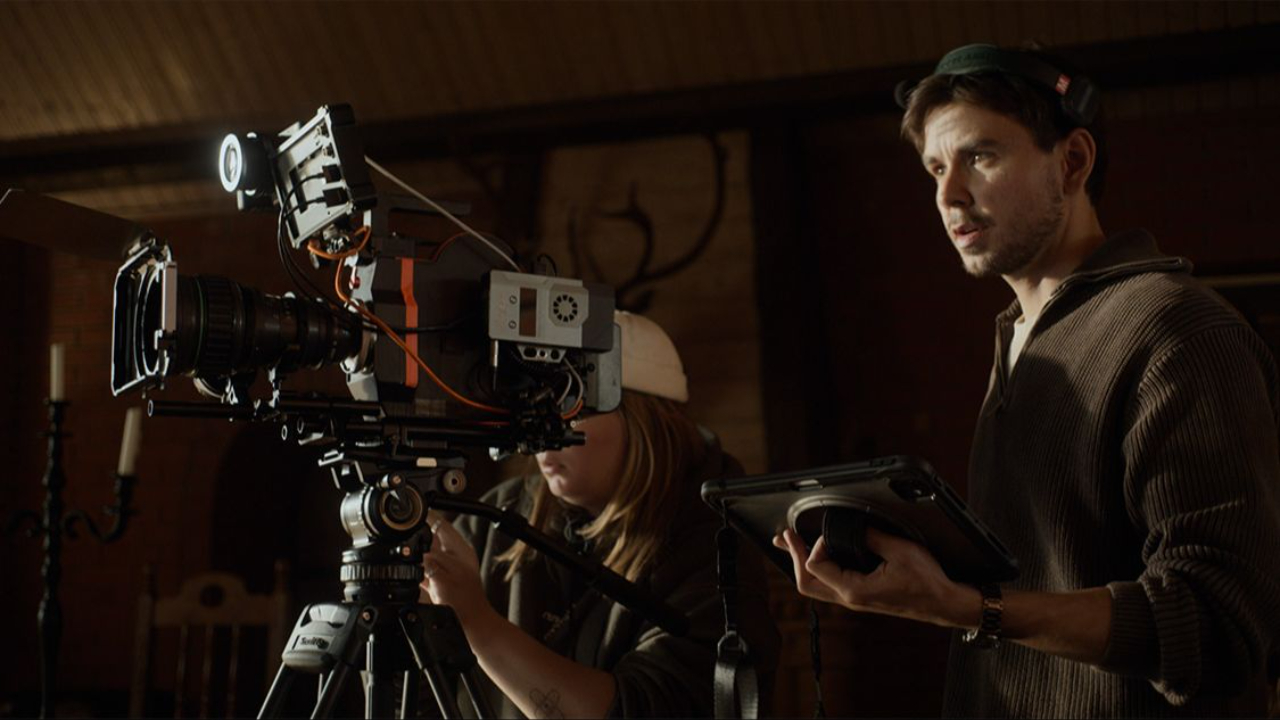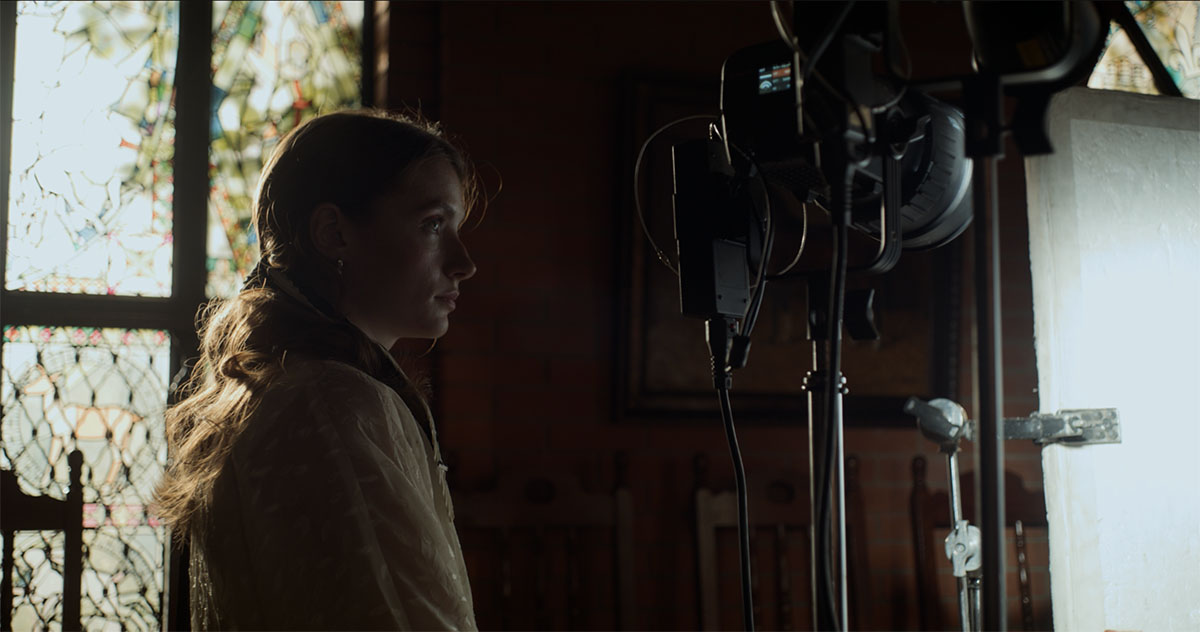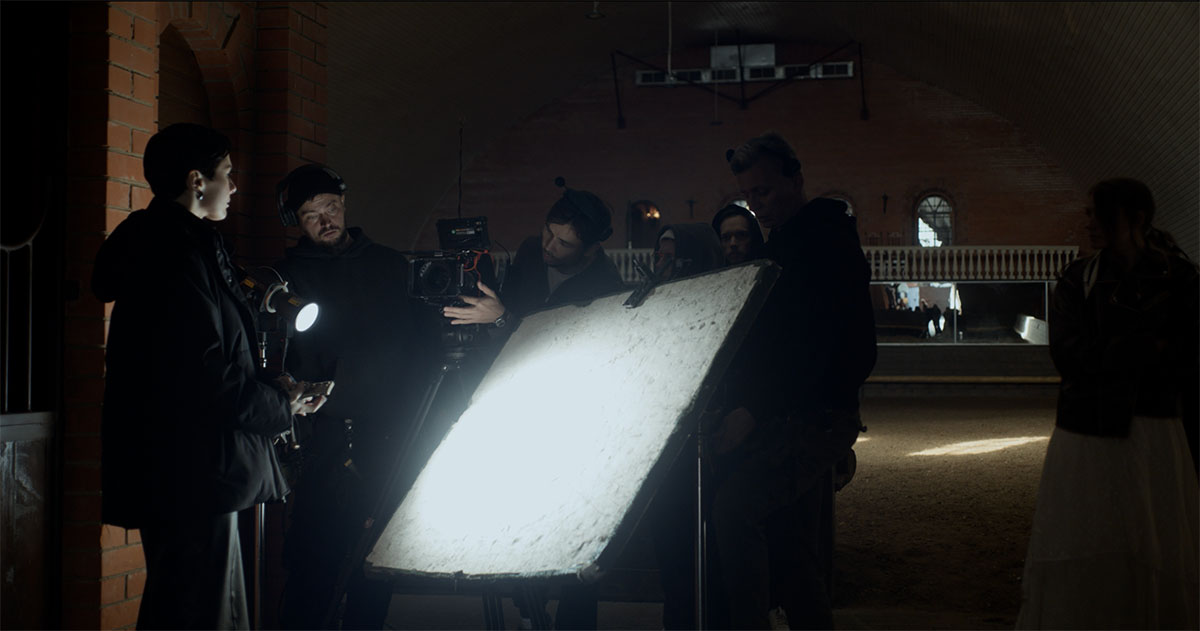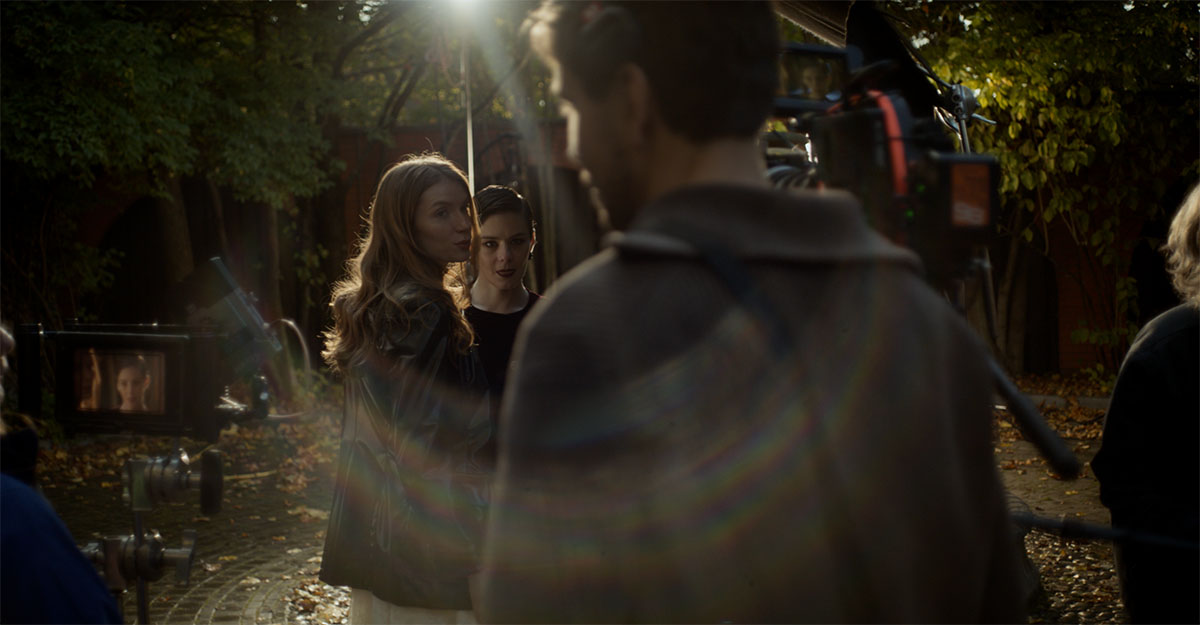
How to Stay Sane in an Unstable Industry
Oct 24, 2025
Have you ever met a colleague who doesn’t worry about how much work they have or about not having any shoots or projects at all? I haven’t. Everyone worries about it!
It’s the kind of thing that can really wear you down emotionally, to the point where you lose any sense of control or stability. I can’t remember a single shoot where someone from the crew didn’t ask, “How’s the season going? Got any projects lined up?” Everyone’s thinking about it, living in that constant wait for the next shoot.
And I totally get it. I really feel for people who get sad about not having interesting projects or who stress over the unstable nature of this work.
I understand that feeling. But I just couldn’t keep living with that uncertainty. A couple of years ago, I made a few changes in my life that almost completely freed me from emotional dependence on my work or the state of the industry. As a cinematographer, content creator, and independent filmmaker, I want to share what helps me deal with that anxiety during slow or uncertain times in the market.
Stagnation
In our industry, every project is like a full employment cycle. Think about it, you’re a skilled specialist selling your craft for X amount multiplied by Y time. You sign a contract, complete it, “get laid off,” and then you’re back to looking for the next gig! Each project leaves you with a new collaboration credit, a brand or name attached, and a finished piece that adds to your experience - something you’ll be judged on during your next round of interviews, pitch decks, or treatments.
Of course, in such a system there are no guarantees. Wrapping one project doesn’t mean the next one is already waiting.
In the job market, you (and I :) have to sell yourself - be visible online and offline, network constantly, and stay connected with people in the industry. From there, some things are within your control and some simply aren’t.
The world around us never stands still. Someone crashes the markets with a single tweet. One country attacks another. Somewhere, a drone falls in the wrong place at the wrong time. Someone eats a freaking bat or invents a way to scrape real content and turn it into synthetic. And then you wake up feeling like all your efforts to build a stable future were for nothing - the rules have changed again, the world is different, and half your projects are on hold because you can’t go on set. Maybe it’s quarantine. Maybe the writers are striking. Or maybe budgets and projects just got frozen.
And that’s how it always is.

But here’s the good news: even after the worst storm, calm weather always returns. Waves come and go in cycles. I really dislike how realistic it is that any, even the loudest career, can stop or stall at any moment - but there is something we can influence.
Beyond accepting the small, unpredictable shifts of the world, we can also take charge of the "macro processes" in our own lives. I’m talking about being prepared for change and lowering anxiety when things get uncertain.
What helped me first was learning to accept a changing world. I’ve tried to make peace with its movement and chaos. There’s no point burying your head in the sand and pretending everything will be fine “sooner or later.” Things will be as they will be. Trying to create absolute stability is just playing with the illusion of control.
I’ve noticed in myself that anxiety often comes from the illusion that I control life. But here’s the subtle truth: I can’t control A (how many cool projects appear, the economy, diseases, politics), but I can control and take responsibility for B (the quality of my relationships with colleagues, family, and friends; where my free time goes; how I look and feel; how I manage money).
And from that realization came my strategy.
Think about it — how would a ship captain act if he sailed out unprepared for a potential storm?
Storm is coming.
Captain: “Oh shit! No, this shouldn’t have happened! I just got unlucky! I was sure everything would go smoothly!”
That’s the mindset of a child, of someone who’s built a fantasy where everything must go perfectly. It’s hard to break out of that mindset. What helps me in those moments is a simple mantra:
There’s no point trying to control the world or predict the future. Instead, I’ll focus on what I can do now to prepare for possible problems — financially, physically, and emotionally. And most importantly, remember: there are no unsolvable problems. When they appear, you’ll find your way out and adapt. Stop underestimating yourself.
Learning to believe that we can get through anything is something worth protecting and nurturing.
Yeah, that got a bit heavy - but these are the thoughts that have really helped me stay grounded.
Still, I’ve got a few more tips on managing anxiety that I’ve learned and live by.
The Big Pie
I picked up this brilliant idea from Dale Carnegie’s book How to Stop Worrying and Start Living.
Imagine your life as one big pie, sliced into pieces, each with a different “filling,” or category. For example, our imaginary character might have a pie that looks like this:
-
30% work
-
25% family
-
20% small business / personal project
-
5% sports
-
5% hobbies
-
5% travel
-
5% networking / social media
-
5% education
Now compare that to another character whose life looks like this:
-
90% work
-
10% family
Just imagine how fragile that second person’s life becomes the moment something goes wrong at work. How dependent they are on that single area that fills nearly all their time. Picture the collapse that happens if you take that piece away.
People like that do exist - and they often look like monks, completely devoted to mastering their craft. Take sushi master Jiro Ono, for example - a stunning example of dedication and pure focus.
I’m not saying that’s a bad thing. But for me personally, living for one single idea or pursuit feels emotionally unsustainable. Some time ago, I made the decision to diversify how I spend my time and energy to spread it across different things that interest me, so I wouldn’t lose balance.
And let me tell you when something enters your life that’s not about earning money or chasing your calling, it does wonders for your emotional well-being.

Diversification
I like feeling useful. I love when my time doesn’t go to waste and pauses between projects doesn’t scare me anymore, because I always know what to do with it.
I run my YouTube channel as a long-term media project, where I’ve built a system that lets me work directly with brands and advertisers. It keeps me connected to my main work as a cinematographer while letting me stay creative, collaborate, and provide value - both to sponsors and to the audience by sharing knowledge and inspiration.
I also genuinely love teaching. First, when I teach, I have to research. To explain something properly, I need to dig deep into the topic. Say I’m preparing a lesson on tonal perspective - I’ll go talk to pyrotechnicians. Turns out they use special smoke compounds. Wow! they can even create morning haze across a huge field! And they can make explosions with different densities, shapes, and colors! And guess what - glycerin is basically just water, alcohol, and oil. By teaching, I end up learning myself.
Of course, I also exchange my time and skills for income - the workshops and masterclasses I organize are full-fledged business projects with their own structure, marketing, and content plan.
Ok, coming back to the idea of diversification. I’ve emotionally detached myself from everything I do and clearly separated art / work / business / hobby. Few views on YouTube? That’s fine, I just finished an amazing project, taught new people, and gained valuable experience! No shoots this week? No problem - time to focus on my channel, work directly with brands, or host a new masterclass.
That’s how it works - let what’s stalled rest for a while, and switch your energy elsewhere.
And if you’re like me prone to anxiety, try finding an additional way to apply yourself beyond your main job. What I’ve noticed is that complementary skills often work best. The most genuine and exciting side projects usually come from people who stay close to their main craft. Like filmmakers making products for filmmakers.
A simple example - "Alice" works full-time as a cinematographer but also happens to be great at color grading. She sells her LUTs or plugins for DaVinci Resolve.
Another one - "Nick" works in the industry as a cameraman, but he’s also known among friends as a 1AC or 2AC. He rents out some of his gear to colleagues - his own little rental business.
My favorite real example is Lawrence Sher, the founder of ShotDeck. A talented cinematographer building a film career while also creating a product that helps millions of others.
Think about what slices make up your pie. If you feel anxiety eating away at you and making life less enjoyable - maybe you’ve trapped yourself into depending on just one part of it: your job.
I’ve personally felt how freeing it is to break that emotional attachment, and it didn’t hurt my cinematography career one bit. I simply fill the gaps with projects I create myself or collaborate on with others.
And no, this isn’t about starting a business or getting a second job - it’s about discovering other creative abilities you can put to use, beyond just knowing how to handle a camera and light beautifully.
Got charisma? Inspire people, tell stories - over time, that can become something valuable.
Love gear? Nothing wrong with joining a crew as 2nd or 3rd AC, helping out with tech.
Enjoy post-production and meditating over images? Do editing or color work - why not?

What’s next?
I want to end this piece with something inspiring - a skill that every one of us already has. A skill we should value and train constantly.
It’s the ability I mentioned at the very beginning the skill of getting yourself out of any mess.
Most problems are more or less solvable, and we have what it takes to solve them.
Whenever anxiety about the future starts creeping in, I remind myself:
There’s no need to fear this ever-changing world — it will always be unstable. What really matters is how I meet that instability. Am I ready for it? Have I diversified my skills and time? Have I built my safety cushion?
When I worry about things that might happen, I’m like a weatherman trying to change the forecast instead of simply accepting the weather and preparing for it. So, what can I actually influence in my life right now?
Instead of worrying, overthinking, and trying to predict the future, I stick to just four things:
-
Accept that we’re not gods — we control almost nothing. Relax.
-
Prepare, at least in basic ways, for life’s worst-case scenarios.
-
Emotionally detach from your work — find things to do outside of it. Diversity and balance are key.
-
Focus on how well you handle challenges, rather than trying to predict them.
Just think back to a time when you overcame something tough — you did it.
And you’ll do it again, no matter what.
So, I wish you emotional strength, amazing projects, and plenty of beauty in your life.
Stay in touch!

